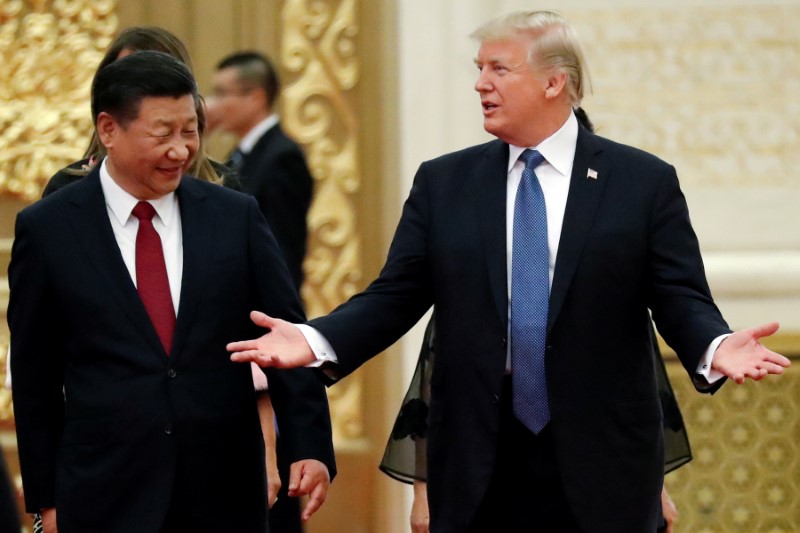Intel stock extends gains after report of possible U.S. government stake
Investing.com -- China is “highly unlikely” to offer concessions to the United States amid the escalating trade conflict, according to Bank of America.
Rather, the world’s second-largest economy is expected to adhere to its strategy of "retaliate, stimulate, and negotiate" after the recent imposition of a 104% tariff on Chinese imports by the U.S.
“In our view, for Chinese policy makers, the uncertainty around U.S. tariff policies suggests that any discussion with the U.S. to lower tariffs would, at best, achieve a small, temporary deal, but there could be risk of further tariff hikes in the near-term,” said Helen Qiao, China & Asia Economist at BofA.
Recent media reports suggested that China's potential retaliation could extend beyond tariffs. This includes measures such as increased tariffs on agricultural products, a ban on poultry meat imports, suspension of bilateral cooperation on fentanyl, restrictions on service trade, prohibition of U.S. movie imports, and investigations into U.S. companies' intellectual property gains in China.
Should China undertake these steps, it could “risk triggering even more tariff hikes on Chinese imports, but the marginal impact on bilateral trade would likely be limited, given significant damage is likely done already,” Qiao said.
In response to the massive tariff shock, Qiao expects investors to turn their attention to China’s stimulus measures in the near term.
She forecasts monetary easing from China’s central bank, including a reduction in the reserve requirement ratio (RRR) followed by two interest rate cuts.
Further, Qiao expects China to accelerate fiscal spending in the coming days and to plan a substantial fiscal stimulus aimed at boosting consumption and investment, potentially to be announced at the Politburo meeting in late April.
Regarding negotiations, China may initially seek Free Trade Agreements (FTAs) with other trading partners before engaging with the U.S. administration, Qiao said.
The upcoming trip of Chinese President Xi Jinping to ASEAN countries and recent communications between Premier Li Keqiang and EU President Ursula von der Leyen indicate China's intention to broaden its trade relationships.
“China may open its door wider to more countries so as to maintain access to global trade, we think,” Qiao wrote.
For investors, BofA's economist advises monitoring the yuan's daily fixings against the dollar and upcoming coordinated press conferences from various ministries, which could signal a policy shift prioritizing domestic demand support over foreign exchange stability.
